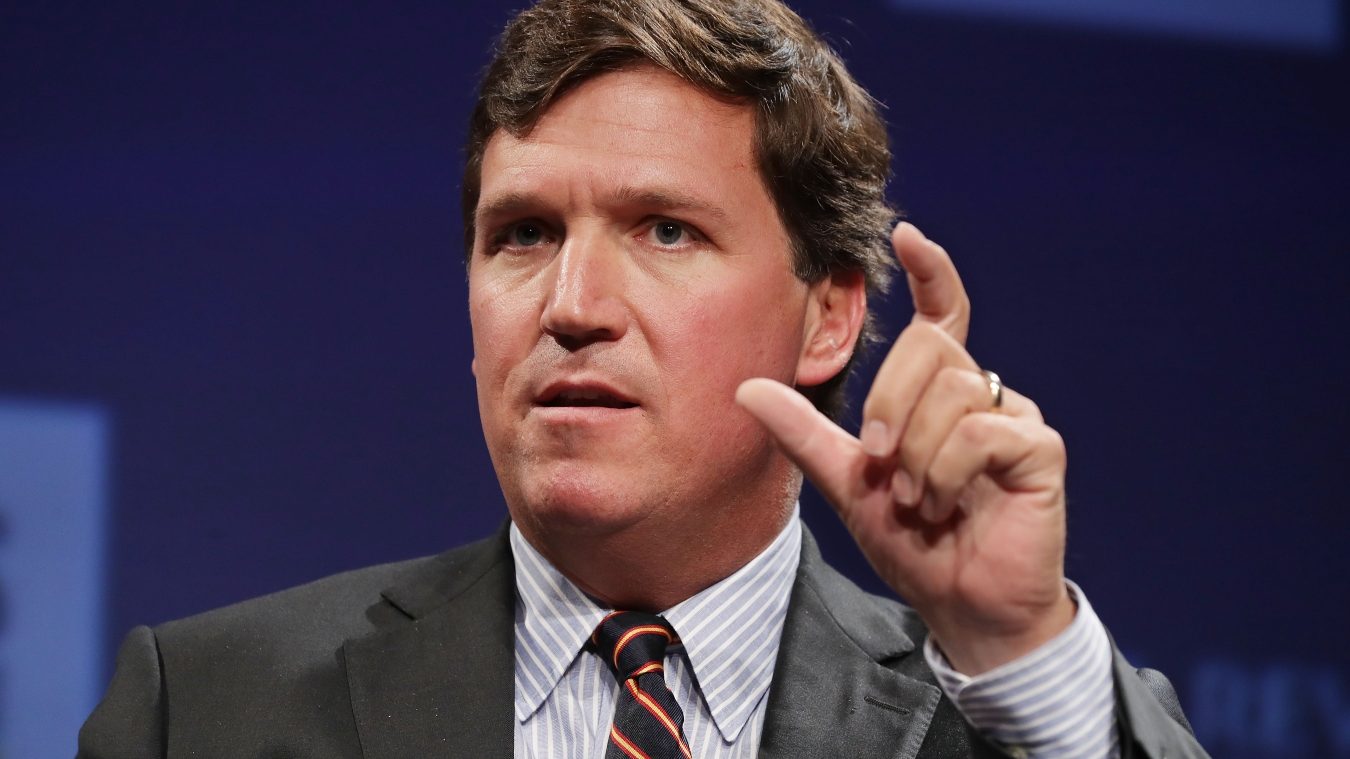Tucker Carlson spent years denying, deflecting, and sowing doubt on climate change to his 3.4 million nightly viewers.
His program was the most popular on Fox News and he spent his nights spewing misogynistic, racist, and bizarre rants. Carlson, who began his role as host of Tucker Carlson Tonight in 2016, also obsessively waged a war on guests who talked about climate change, from scientists to protestors.
While court documents and his first public appearance since he was abruptly fired earlier this week point toward Carlson’s and his peers’ full awareness that they knew they were lying to the public, the damage is still real.
From airing conspiracy theories about the government forcing people to eat bugs or inviting guests on air to talk about shrinking people to stop carbon footprints, here are some of his more memorable moments.
- “In the hands of Democratic politicians, climate change is like systemic racism in the sky,” Carlson said after Western lawmakers linked 2020 wildfires to climate change.
- “How about no more heat or air-conditioning or electricity or cars or wearing leather or eating meat or having children? All are sins against the climate. So, for you, it is insects, tap water, and celibacy,” Carlson said early this year, declaring that the United States had a new “climate cult” as politicians and environmentalists look to decarbonize the economy.
- “I’m open-minded and you are not,” Carlson assured famous scientist and climate activist Bill Nye in 2017.
Now that Carlson is off the air, renowned climate scientist Michael E. Mann didn’t mince words on the Fox News host’s role in delaying climate action.
“He was a perpetual fount of climate change disinformation,” Mann said in an email to Grist.
Mann, a professor at the University of Pennsylvania and author of The New Climate War, said that Carlson’s nightly misinformation “pollutes our entire public discourse, slowing down the needed decarbonization of our economy, ultimately leading to trillions of dollars of damage, and much suffering and loss of life.”
For Allison Fisher, Carlson is just one part of a larger climate change web of denial, which continues to cause incalculable damage.
Fisher, the climate and energy program director at media watchdog group Media Matters for America, said Carlson’s track record of denialism and overt eco-fascism — seen in a 2019 segment where he said climate-based migration to the U.S. would allow immigrants to “pollute” and “despoil” the country — doesn’t bode well for consequences at the network for stoking fear over the climate crisis.
She said Carlson’s departure would stop his specific brand of obfuscation, but Fox has plenty of other hosts and guests who latch onto ways to stall progress and sow doubt.
“The bigger threat is that they’re going to continue to push back against the clean energy economy and the transition away from fossil fuels,” Fisher told Grist. “They all do it in their own way for their own audiences.”
When climate deniers like Carlson deflect and misinform on the pressing issue of climate change, the damage can be hard to tally, said Max Boykoff, a professor of environmental studies at the University of Colorado Boulder and a researcher of media and climate communications.
“It’s a whole lot easier to muddy the waters of these discussions and destroy public trust than it is to keep those waters clean,” Boykoff told Grist. “A lot of his utterances over the years through the Fox News megaphone really did a lot of damage.”
Boykoff said Carlson, who he called “one of the most influential contrarians on climate change,” followed textbook techniques of denial.
Informed by the teachings of Kari Norgaard, a University of Oregon sociologist and author of Living in Denial: Climate Change, Emotions, and Everyday Life, Boykoff said Carlson would likely engage in denialism to create ambiguity and delay the progress of how the world was moving forward.
“When he denies climate change, he fractures the collective action that we need to be moving forward,” Boykoff said.
Boykoff, author of Who Speaks for Climate? Making Sense of Media Reporting on Climate Change, said one way to combat climate misinformation is to find ways into climate change conversations through other issues that are affected by a warming world.
“We can talk about it through energy security, we can talk about it through immigration,” Boykoff said. “There are all these different ways we can find common ground by talking about associated challenges we’re facing.”




